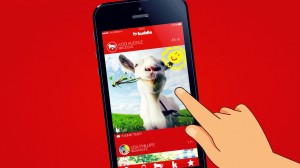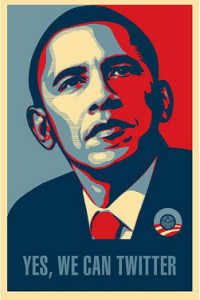Secrecy, Privacy, and Ephemerality in Social Media
In Opinion, Social Bookmarking, Social Media, Social Networking, Web 2.0 | No comment
Back in June, the simplistic social media app Yo was hacked by three college students, who were able to get the phone numbers and contacts of every Yo user as well as being able to send them false messages that appeared to be from other users. Considering Yo was developed in merely eight hours, it wasn’t a huge surprise that there were security issues, but what’s disturbing is how quickly users latched on to the new hot social media app without considering that their personal information might be at stake. The social network Secret was marketed as the ‘anonymous social network’ but hackers last month were able to find an easy way to make it a lot less anonymous.
Though Yo and Secret have issued fixes to these security breaches, as have the larger, more popular social networks, it would not be crazy to say that our faith in social network security is waning. Facebook is making efforts to change things; they acquired a cybersecurity start-up company called PrivateCore last month in an effort to help protect the data of Facebook users. However, with the state of social media privacy and security still unsure, there are other things people and social networks are turning to (including Facebook).
Ephemerality is the nature of apps like Snapchat, Bolt, Slingshot, and plenty of similar social media applications. The idea here is to ensure some manner of privacy by making messages, photos, and videos only appear temporarily before being deleted forever. Recently, Facebook began testing their own new ephemeral feature, which will allow users to use a ‘Choose Expiration’ function. This feature will give posts a life expectancy from anywhere between an hour and a week. Thus far, this feature has only been available to a small set of users operating Facebook for iOS and it is unclear what the future of the feature may be.







 In a recent New York Times piece, Brad Stone and Ashlee Vance lent some much needed perspective about Apple’s maybe-kind of-sort of-impending Tablet. Depending on which vague rumor or piece of conjecture you decide to believe, the Apple Tablet will either “redefine print,” “bridge the gap between laptops and iPhones,” or save the planet from a catastrophic asteroid strike.
In a recent New York Times piece, Brad Stone and Ashlee Vance lent some much needed perspective about Apple’s maybe-kind of-sort of-impending Tablet. Depending on which vague rumor or piece of conjecture you decide to believe, the Apple Tablet will either “redefine print,” “bridge the gap between laptops and iPhones,” or save the planet from a catastrophic asteroid strike. For the third year in a row
For the third year in a row  It’s no surprise that tempers run high in professional sports, but this becomes especially true when it comes to the playoffs. But tempers did more than run high during game three of the Dallas Mavericks and Denver Nuggets NBA playoff game. After the Nuggets walked away with a referee-aided 106-105 win to make it a 3-0 series lead, tempers finally bubbled over.
It’s no surprise that tempers run high in professional sports, but this becomes especially true when it comes to the playoffs. But tempers did more than run high during game three of the Dallas Mavericks and Denver Nuggets NBA playoff game. After the Nuggets walked away with a referee-aided 106-105 win to make it a 3-0 series lead, tempers finally bubbled over. It took the loss of a musical icon, but a 22-year-old Dublin student finally proved what just about everyone suspected. Wikipedia may not be the most accurate source of information available on the internet.
It took the loss of a musical icon, but a 22-year-old Dublin student finally proved what just about everyone suspected. Wikipedia may not be the most accurate source of information available on the internet.